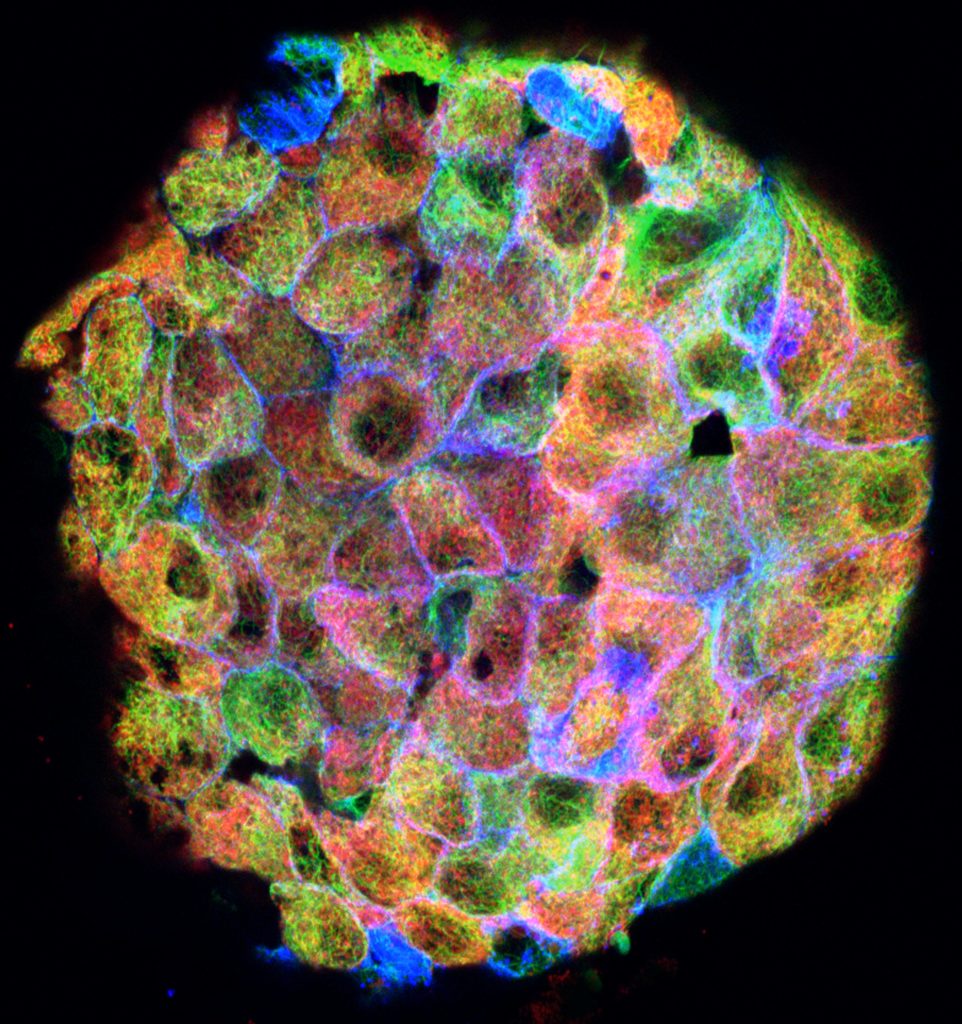Irina Kaverina
Department of Cell and Developmental Biology (CDB)
Vanderbilt Diabetes Research and Training Center (DRTC)
Vanderbilt-Ingram Cancer Center (VICC)
Program in Developmental Biology (PDB)
Program in Neuroscience for Undergraduates
Microtubules are dynamic biopolymers, which serve as major trafficking highways in cells. Microtubule-dependent transport is critical for physiology of all cell types, and disturbance of microtubule networks underlies many human diseases, from neurodegeneration to diabetes. Kaverina laboratory uses high-end microscopy combined with molecular and computational approaches to target basic cell biology of microtubules as well as the role of microtubules in pancreatic beta cell physiology and diabetes.

Microtubules serves as tracks for intracellular trafficking and to a large extent define architecture of the cytoplasm. We utilize high- and super-resolution live-cell imaging to study regulation and complexity of microtubule networks in specialized cell types and relevance of their functions to disease. Main research directions in the lab are based on our recent discoveries of (1) non-conventional microtubule-organizing centers and (2) metabolically-regulated microtubule rearrangements that control insulin secretion from pancreatic beta cells.
Keywords: microtubules , Golgi , cell migration , insulin secretion , diabetes , microscopy , cytoskeleton
Research Area: Diabetes, Obesity, Metabolism , Imaging , Cell Structure , Cell Signaling , Computational and Systems Biology , Developmental Biology